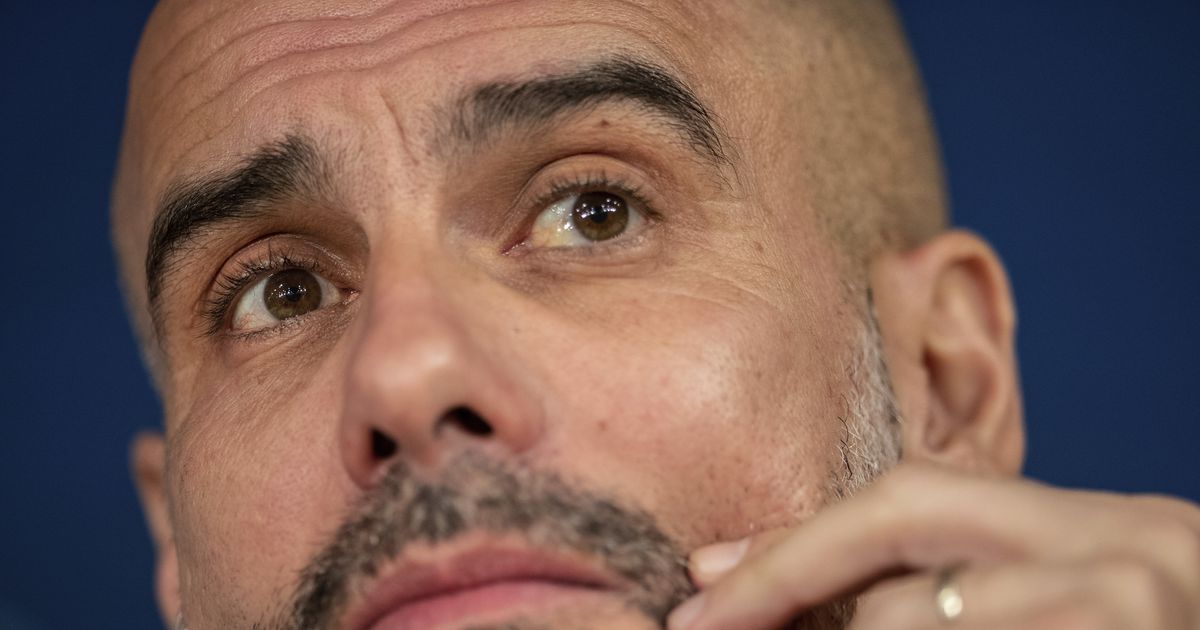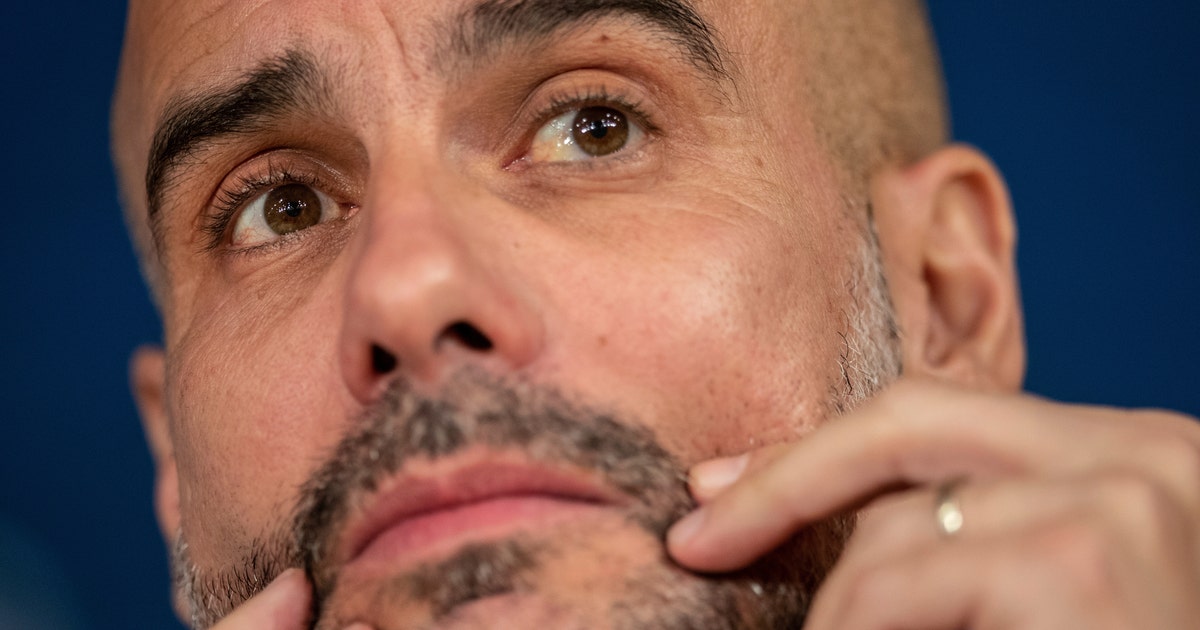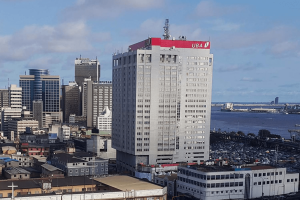A look at the legal issues in Man City’s appeal against UEFA


GENEVA (AP) — Manchester City’s legal fight with UEFA was expected, but how the English champion will organize its legal tactics is not yet clear.
The Court of Arbitration for Sport on Wednesday confirmed City met a 10-day deadline to file an appeal against a two-year ban from European competition — punishment imposed for “serious breaches” of UEFA’s club finance monitoring rules and failing to cooperate with the investigation.
The court’s update came hours before City was to play in the Champions League at Real Madrid.
The aristocratic, 13-time European champions are just the kind of soccer power City’s owners from the Abu Dhabi royal family aimed to dethrone when buying an underachieving club in 2008. More than $1 billion of investment has brought four Premier League titles, the attention of UEFA investigators and still no European trophy.
City faces a likely tough case at CAS, which has previously upheld UEFA’s “Financial Fair Play” system and the use of evidence obtained by methods illegal under Swiss law.
Still, City chief executive Ferran Soriano insisted last week “the allegations are false” and promised fans “we will do everything that can be done to prove so.”
THE CASE
UEFA excluded City from playing in the Champions League, Europa League or Super Cup in the next two seasons. UEFA also fined City 30 million euros ($32.5 million).
The investigation was opened after leaked club documents were reported in German magazine Der Spiegel in November 2018. The published evidence appeared to show City deceived UEFA by overstating sponsorship deals from 2012-16 and hid the source of revenue tied to its owners in Abu Dhabi.
UEFA’s rules allow unlimited spending on stadiums and youth development, but control spending on player transfers and wages. Clubs must break even on spending their commercial income set at fair market rates.
In Manchester, club officials reportedly call the pending appeal “CAS Two.” In “ CAS One,” City lost its attempt in November to have UEFA’s investigation thrown out on procedural grounds.
LEGAL ARENAS
The case is likely to be fast-tracked and will start at sport’s highest court in Lausanne, Switzerland. It could later go to the Swiss Federal Tribunal for a further appeal.
If City does not like the results in Lausanne, longer-term options include the European Commission in Brussels and European Court of Justice in Luxembourg. The UEFA judge who oversaw banning City, José Narciso da Cunha Rodrigues, sat at the European court for 12 years.
The case could also be settled out-of-court. That decision would involve UEFA leaders, including president Aleksander Ceferin, instead if its independent investigators and judges.
For UEFA, a prolonged contest with wealthy and determined club owners could be risky. A private agreement would surely be ratified by CAS.
“I think UEFA is too committed to FFP (Financial Fair Play) regulations to settle,” Antoine Duval, a sports law researcher who studies CAS, said in an interview.
If City’s appeal is lost, or only partially upheld by July, the club can seek a quick interim decision from a supreme court judge while the main federal appeal is prepared. A provisional freeze on UEFA’s ban could clear City to enter the next Champions League in September.
In May 2018, Peru captain Paolo Guerrero got a provisional federal ruling allowing him to play at his first World Cup weeks later. The 34-year-old Guerrero ultimately lost his federal appeal against a 14-month ban for doping.
“I would see much more reluctance on the side of the Swiss judges unless they are very confident Man City will prevail,” said Duval, who works at the Asser Institute in The Hague.
THE EVIDENCE
Key documents published in the “Football Leaks” series were likely obtained by a hacker now detained in Portugal.
City never disputed that the revelations were based on authentic information. Instead, it argued the evidence was stolen and reported out of context.
Illegally obtained evidence has been allowed by CAS and the federal court, including in appeals by FIFA officials filmed by undercover reporters and Ukrainian soccer players who fixed matches.
One of the internal emails said City officials preferred in a previous phase of UEFA monitoring to spend tens of millions on “the 50 best lawyers in the world” to sue rather than accept punishment.
UEFA also has financial accounts submitted by City that are mandatory for FFP compliance.
THE LAWYERS
One reported big-money City lawyer is London-based Lord David Pannick, who beat Boris Johnson’s government in a Brexit-related supreme court case in September.
In a previous soccer case, Pannick represented Queens Park Rangers in a failed attempt to have the English Football League’s financial fair play rules — modeled on UEFA’s system — judged unlawful under competition law. That case was settled after a first loss at a tribunal.
In that first appeal, City’s legal team came from two London chambers, Freshfields and Monckton. It also retained the Swiss firm of veteran Olympic advisor Francois Carrard, using lawyers from its Lugano office and not the Lausanne base.
UEFA retained the Zurich-based firm of longtime advisor Michele Bernasconi, an in-demand CAS judge who is personally close to FIFA president Gianni Infantino.
A key next step in “CAS Two” is picking the three arbitrators. City and UEFA will each choose one, and the court appoints a panel president. Selections can be challenged.
Impartiality and independence of judges is one of the few grounds for appeal to the Swiss supreme court, Duval noted.
PAST CASES
Infantino was UEFA general secretary in 2014 when he got involved in an agreement with City to forfeit 20 million euros ($21.8 million) of Champions League prize money in a first test of FFP rules. City’s high-value sponsorship deals from Abu Dhabi were also a factor then.
The settlement agreement six years ago then avoided a higher-stakes legal case for UEFA which could have undermined the FFP system just as it was established.
A CAS panel in 2016 upheld the UEFA rules’ compliance with European law in Galatasaray’s failed appeal against a one-season competition ban. There is speculation CAS judges could rule City’s two-year ban “disproportionate” and give a compromise verdict of only one season. However, Galatasaray, AC Milan and other clubs that broke financial rules were excluded for one year in cases that lacked the bad faith UEFA found in City’s conduct.
“It makes much more sense that Man City should face a longer sanction,” Duval said.
City’s lawyers, however, could question why UEFA dropped an FFP investigation into Qatari-owned Paris Saint-Germain last year with no action taken.
FINAL WHISTLE?
No timetable for City’s case was put forward by CAS on Wednesday. Previous appeals by clubs in UEFA financial cases were dealt with after a few months in June or July to avoid harming the next season’s competitions.
Soriano, the Man City chief executive, said he hoped for a resolution “before the beginning of the summer” in a statement notably toned down from previous, aggressive club comments.









